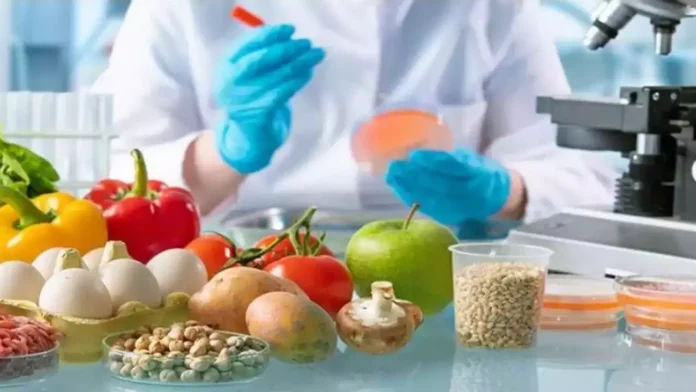In a bid to enhance the quality of organic food available in the domestic market and ensure better pricing for farmers, the Centre plans to invest about INR 105 crore to add organic food testing capabilities to two dozen central and state-owned testing labs, as reported by Mint, citing two people aware of the development.
According to the sources, India’s food regulator plans to upgrade an additional 66 government-owned labs to facilitate organic food testing.
The move comes as India’s organic food market rapidly expands, prompted by the current limited capacity for testing organic products, as stated by one of the individuals mentioned on condition of anonymity.
As of January 1st, approximately 67 laboratories are capable of conducting testing and certification for organic food. These laboratories are predominantly privately owned and associated with APEDA (Agricultural & Processed Food Products Export Development Authority). However, both APEDA and the government express dissatisfaction with the testing results from private labs, leading to the decision to enhance government-owned laboratories.
Continue Exploring: Grocery retailer The Organic World to expand nationwide with 100 stores by 2025
The Bureau of Indian Standards (BIS), the country’s apex certification body for testing standards under the Ministry of Consumer Affairs, plans to provide funding to state and central government institutes for the enhancement of their food testing laboratories.
The initiative will be carried out in collaboration with the Food Safety and Standards Authority of India (FSSAI). The other person, who also preferred not to be named, mentioned that over 90 laboratories are anticipated to be operational for testing organic products within the next three months.
Financial and technological assistance will be provided to food laboratories within research institutes, including those associated with the BIS, the Council of Scientific & Industrial Research (CSIR), the Indian Council of Agricultural Research (ICAR), the Defence Research and Development Organisation (DRDO), the National Test House (NTH), and other relevant entities.
Financial support will be allocated to laboratories located in Kerala, Karnataka, Maharashtra, Uttar Pradesh, Rajasthan, and Haryana, covering a total of 12 state labs and 12 central research institute labs. Additionally, the remaining 66 labs will undergo upgrades facilitated by FSSAI.
Continue Exploring: Tata Consumer Products approves INR 6,500 Crore fundraising for Capital Foods and Organic India acquisitions
The BIS has approved the proposal to procure advanced equipment for these labs, as stated by the first person cited above.
Queries directed to the Director General and Secretary of BIS, the spokesperson of the Consumer Affairs Ministry, and the Chief Executive of FSSAI remained unanswered as of press time.
“Recently, APEDA banned some private agencies for their involvement in unethical practices,” said Siraj Hussain, former agriculture secretary. “So, it will be a good move by BIS and FSSAI for setting up their own labs for organic products. This will increase consumer confidence in organic products.”
According to the Economic Survey 2022-23, India boasts the largest count of farmers engaged in organic farming globally, with 4.43 million practitioners. In the same period, Indian farmers yielded 2.9 million tonnes of certified organic produce, encompassing food grains, oilseeds, perishables, cotton, and tea.
In 2022-23, India exported INR 5,525 crore worth of organic produce, significantly surpassing domestic sales estimates. However, domestic consumption of organic food products remains constrained by high prices, primarily influenced by retailers seeking substantial margins and expenses associated with certification.
Continue Exploring: FSSAI greenlights amendments for single food certification authority
India’s primary exporting destinations for organic food products include the US, the EU, Canada, the UK, Switzerland, and several other countries.
According to APEDA, India had a total area of 10.17 million hectares under organic produce in 2022-23. Among states, Madhya Pradesh leads as the largest producer of organic food products, followed by Maharashtra, Rajasthan, Karnataka, and Odisha.
Globally, Australia holds the largest area under organic agriculture, spanning 36 million hectares, according to the World of Organic Agriculture report 2021.





